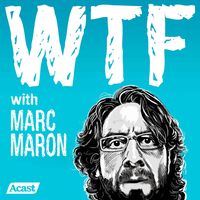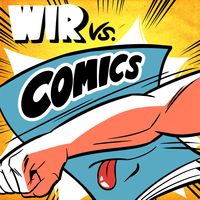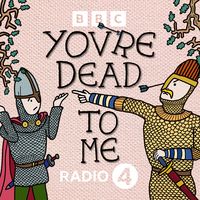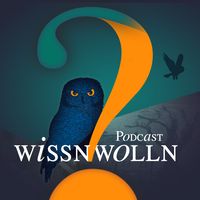The Cold War, Prohibition, the Gold Rush, the Space Race. Every part of your life - the words you speak, the ideas you share - can be traced to our history, but how well do you really know the stories that made America? We'll take you to the events, the times and the people that shaped our nation. And we'll show you how our history affected them, their families and affects you today. Hosted by Lindsay Graham (not the Senator). From Wondery, the network behind American Scandal, Tides of History, American Innovations and more.You can binge new seasons of American History Tellers early and ad-free on Wondery+. Join Wondery+ in the Wondery app or on Apple Podcasts.
https://wondery.com/shows/american-history-tellers/?utm_source=rss
Gesamtlänge aller Episoden: 9 days 9 hours 35 minutes
recommended podcasts
- season 1
- season 2
- season 3
- season 4
- season 5
- season 6
- season 7
- season 8
- season 9
- season 10
- season 11
- season 12
- season 13
- season 14
- season 15
- season 16
- season 17
- season 18
- season 19
- season 20
- season 21
- season 22
- season 23
- season 24
- season 25
- season 26
- season 27
- season 28
- season 29
- season 30
- season 31
- season 32
- season 33
- season 34
- season 35
- season 36
- season 37
- season 38
- season 39
- season 40
- season 41
- season 42
- season 43
- season 44
- season 45
- season 46
- season 48
- season 49
- season 50
- season 51
- season 52
- season 53
- season 54
- season 55
- season 56
- season 57
- season 58
- season 59
- season 60
- season 61
- season 62
- season 63
- season 64
- season 65
- season 66
- season 67
- all
- 1
- 1
episode 1: Bleeding Kansas | John Brown's Crusade
In the 1850s, the United States was lurching toward a crisis over slavery -- and abolitionist John Brown stepped into the fray. Brown believed it was his God-given destiny to destroy slavery. His crusade took him from abolitionist meetings in the Northeast, to the Underground Railroad in Ohio, to the bloody plains of Kansas. In 1854, a fierce conflict erupted over whether the territory of Kansas would join the Union as a free state or slave state...
episode 2: Bleeding Kansas | The Pottawatomie Massacre
On the night of May 24th, 1856, radical abolitionist John Brown and seven of his followers crept along the banks of Kansas’s Pottawatomie Creek and stormed a proslavery settlement. They dragged five men from their cabins and killed them in cold blood. Soon, Brown’s name was splashed across the nation’s newspapers, making him a lightning rod for controversy. He would exploit his notoriety to escalate his crusade against slavery, taking his guerrilla war to a new theater: the slaveholding South...
episode 3: Bleeding Kansas | The Raid on Harpers Ferry
In December 1858, John Brown was back in Kansas and Missouri, making headlines for dramatic and deadly raids on plantations. He and his followers freed 11 enslaved men and women and led them on an 1,100-mile journey to freedom in Canada. But all the while, Brown was focused on finally launching his long-planned attack on slavery in Harpers Ferry, Virginia. After months of preparation, on the night of October 16th, 1859, Brown and his “army” captured the town’s federal arsenal and armory...
episode 4: Bleeding Kansas | His Soul Goes Marching On
On October 17th, 1859, John Brown was barricaded inside the federal armory at Harpers Ferry with his hostages and his remaining followers. His attempt to lead an antislavery insurrection had failed. A detachment of U.S. Marines led by Colonel Robert E. Lee had the armory surrounded. For the radical abolitionist, it was his last stand. But after he was captured and sentenced to death, Northern abolitionists rallied to Brown’s cause...
episode 5: Bleeding Kansas | The Man Who Sparked the Civil War
John Brown has been called many things: fanatic, hero, terrorist, martyr, zealot. Some of his contemporaries, including Frederick Douglass, believed that were it not for his raid on Harpers Ferry, the Civil War would never have started. But did Brown’s actions really bring about slavery’s eventual downfall? And can his impact still be seen today in a nation that remains deeply divided over issues of race? In this episode, Lindsay discusses Brown’s complex legacy with historian David S...
- 1
- 1








































